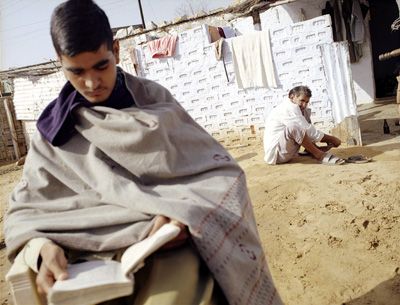Identifying trends in prison policy across the Asia-Pacific region
3rd October 2013

Responding to an invitation to participate in the 33rd Asian and Pacific Conference of Correctional Administrators (APCCA), from the office of the Ministry of Home Affairs, Government of India, I arrived in New Delhi on the morning of Tuesday 24th October in time for the formal opening of the Conference.
The opening session included a formal inauguration of the Conference by Union Home Minister of India, Sushil Kumar Shinde; also present during the opening ceremony were the Minister of State – R P N Singh; Home Secretary – Anil Goswami, and Director General of the Bureau of Police Research and Development – Mr Rajan Gupta.
Twenty countries from the Asia-Pacific region participated, along with a large number of states and union territories of India as well as institutions and civil society representatives.
The theme for this year’s conference was: Corrections – Transformation – Reintegration
The first day of the conference included 18 country and institutional presentations starting with India and followed by Brunei, Canada, China, Hong Kong, Macao SAR, Fiji, Indonesia, Japan, Kiribati, Korea, Malaysia, Singapore, Solomon Islands, Sri Lanka, Thailand, Vietnam and the UN Asia and Far East Institute, granted observer status to APCCA.
I observed a number of similarities across the different presentations, indicating some common trends across the region:
- Increases in prison populations
- Some terminology still reflects the idea of prison as punishment, whereas the conference was attempting to focus more on corrections and rehabilitation
- Foreign prisoners pose a genuine problem and needs addressing
- Numbers of senior citizens / older prisoners also increasing and addressing their needs requires further consideration
- Handling high-risk prisoners is a concern in a number of countries
- While rehabilitation measures were recognised as hugely important, there was a clear need for greater investment in this area of work
- Community participation and the involvement of NGOs was raised, especially in delivering services to help with rehabilitation and reintegration
- The importance of capacity building for those working with and changing the behaviour of often extremely difficult individuals
Days 2 and 3 were given over to break out sessions with a focus on four specific topics:
- Organisational Culture
- High-risk offenders
- Alternatives to imprisonment
- Addressing recidivism
The third session was chaired jointly by myself and representatives from the Commonwealth Human Rights Initiative (CHRI). A summary presentation of the session can be found here.
We plan to follow up on the information gathered and contacts made at the conference including through promoting of the models of community service and probation in South Asia generally (starting with discussions during the forthcoming World Probation Congress in London from 8 – 10 October), and developing and delivering capacity building initiatives aimed at improved implementation of human rights within prison management systems in India (read a summary of the project).